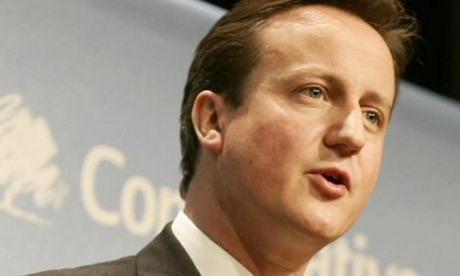Tuesday 23 December 2014 - 00:19
Story Code : 8790
UK Holds Talks With US on Possible Iran Scenarios
LONDON (AP) -- Britain is involved in military contingency planning with the United States over Iran and other potential flashpoints in the Middle East, officials said Friday - but they insisted the talks are not a prelude to a pre-emptive strike against Tehran's nuclear program.
Prime Minister David Cameron's office confirmed that routine military planning is being carried out with the U.S. and other allies on a range of scenarios, including on the potential use by American forces of British bases, some of which can act as staging posts for missions to the Middle East.
The Guardian newspaper reported in Friday's editions that the U.S. had asked Britain to use its bases in Cyprus, and British territory in the Atlantic and Indian Ocean, to help build up forces in the Gulf. It reported that move was regarded as a contingency in case of the need for strikes to halt Tehran's nuclear program.
"Contingency planning is something which we do as a matter of routine. Obviously we are working closely, for example with the United States, as we have done in the past, regarding the use of U.K. bases," a spokeswoman for Cameron told reporters, on condition of anonymity in line with policy.
"We routinely speak to our counterparts in the United States. We don't get into details of those discussions, but we have in the past cooperated on the use of U.K. bases," she said. The U.S. military used British bases in the buildup to the 2003 invasion of Iraq.
Britain's Foreign Office said that the U.K. was involved in "prudent" contingency planning with its allies, including the U.S.
"The government does not believe that military action against Iran is the right option at this time, but we are not taking any option off the table," Cameron's spokeswoman said.
She insisted that Britain remained committed to a policy of imposing ever tighter sanctions against Iran, while also seeking to engage Tehran in talks aimed at ensuring the country has access to civilian nuclear power but abandons its alleged pursuit of an atomic weapon. Tehran insists it is not developing nuclear arms.
Britain's government declined to comment on The Guardian's claim that U.K. attorney general Dominic Grieve had issued legal advice cautioning that any involvement in a pre-emptive strike on Iran - including cooperating on bases - would violate international law.
The newspaper, citing unnamed government sources, reported that in his advice, the government's chief legal advisor had stated Iran did not constitute "a clear and present threat."
Israel has been especially wary of Iran's nuclear plans, and has warned it would use military force to prevent the Islamic Republic from obtaining atomic weapons.
In a speech earlier this month, Cameron said he had warned Israel's Prime Minister Benjamin Netanyahu that any strike on Iran would risk bolstering support for the regime in Tehran. He insisted that international measures, including a European ban on Iranian oil imports, were crippling Iran's economy.
"We need the courage to give these sanctions time to work," Cameron said.
The Iran Project is not responsible for the content of quoted articles.
# Tags











